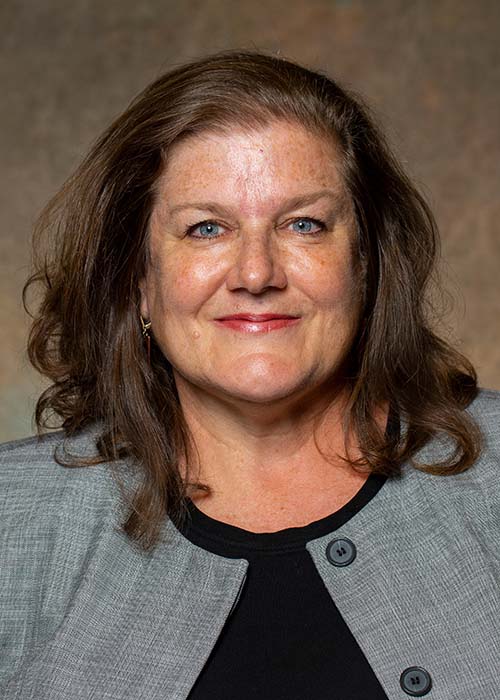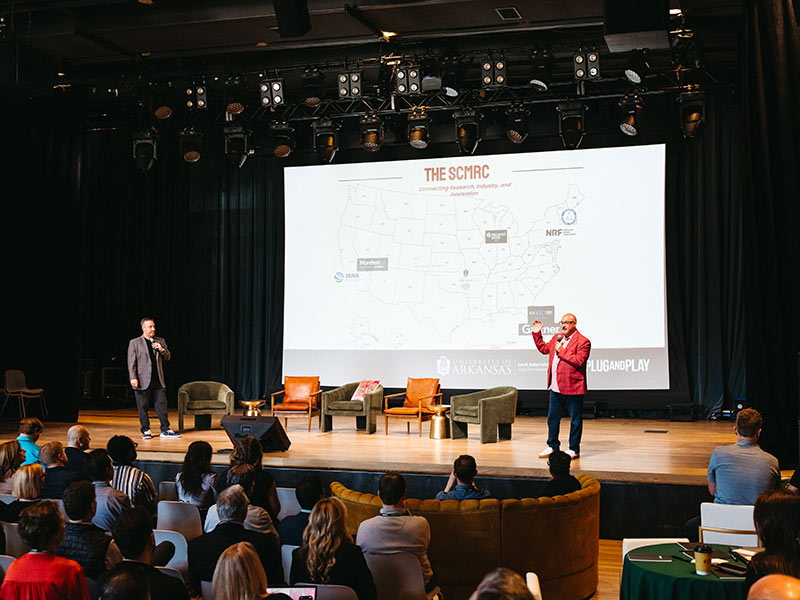
The Global Cold Chain Foundation, in partnership with the Supply Chain Management Research Center at Sam M. Walton College of Business, Feeding America, and Michael’s Energy, was recently awarded a $50,000 grant from the Danone Institute North America and the Foundation for Food & Agriculture Research to study and improve energy-efficient practices in food banks.
The partnership brings together industry experts in cold chain management, energy efficiency, and researchers in the food supply chain. The project began by auditing the energy usage and supply chain practices of two large food banks to establish a baseline understanding of current operations. Based on those findings, tailored recommendations will be developed to enhance both efficiency and effectiveness in the following year.
The project was a grant in response to the Danone Institute North America (DINA) call to improve food systems initiatives. DINA is a nonprofit branch of Danone North America, a subsidiary of Danone, a global food and beverage corporation. Danone North America is responsible for well-known brands such as Dannon Yogurt, Activia yogurt, International Delight coffee creamer, Silk almond milk, Evian water, STōK cold brew coffee, and numerous baby foods and formulas. Danone North America is also one of the largest Certified B Corporations, which means it meets high standards set by B Lab (an international network) for social and environmental performance, transparency, and accountability.
Following implementation, the team will reevaluate the updated practices to assess improvements and refine strategies as needed. Whenever possible, best practices will be monitored over the long term to evaluate their sustained impact and identify opportunities for continuous improvement.
Tackling Hunger
Similar to grocery stores, food banks rely heavily on costly refrigeration units and climate-controlled spaces in their warehouses and distribution centers to safely store perishable foods. This network of temperature-sensitive logistics is known as the “cold chain,” a system of controlled environments spanning manufacturing, production, transportation, distribution and retail which ensures the quality and safety of perishable or sensitive products.
Industry-leading experts in this domain include the Global Cold Chain Foundation, a nonprofit organization committed to advancing education, research and international development through collaborative efforts with industry professionals to build and improve cold chain infrastructure.
According to Feeding America, more than 47 million people, including 1 in 5 children, experience food insecurity in the United States. This issue affects every single county in the country without exception. To combat hunger, Feeding America partners with over 200 large food banks and 60,000 food pantries and local programs nationwide. The organization works to increase access to nutritious food while mobilizing policymakers, supporters and volunteers to help end hunger in the United States.
In response to this, Global Cold Chain Alliance partnered with Michaels Energy, a consulting firm that is an expert in energy efficiency, resource preservation and long-term cost effectiveness. Michaels Energy will assess facilities and operations to identify opportunities for reducing energy waste. The objective is to reduce operational costs within food banks so that the resulting savings can be reinvested across the supply chain, ultimately enabling the delivery of more food to people in need. The effort requires an interdisciplinary approach, from industry to academic partners.
The University of Arkansas is leading efforts to strengthen the entire food supply chain, with a focus on improving warehousing, distribution and especially cold chain operations. Faculty from Walton College’s J.B. Hunt Transport Department of Supply Chain Management will assess logistics, storage and distribution practices to boost efficiency and performance.
Brian Fugate, associate dean for graduate programs and research, and Janeth Gabaldon, teaching assistant professor, are applying their academic expertise to ensure the project is research-driven and provides evidence-based solutions. As Fugate and Gabaldon note, “By streamlining these processes, food banks can reduce operational costs and redirect resources to serve more people facing food insecurity.”
Efficiency and Effectiveness
Food banks struggle with forecasting and planning because food is donated. They often are not aware of the food category, delivery dates and the shelf life of the donation until they receive it.
“If we can bring greater efficiency to that middle mile of the food supply chain, we might be able to bring more food to people’s tables,” Gabaldon said. “If we are successful, imagine if we can replicate it across the country. We hope to increase the shelf life of food -- a byproduct of our energy research efforts -- and reduce the cost and waste.”
This summer, the team audited two facilities operated by Texas-based food banks, and energy analysis and data collection are currently underway:
- The Food Bank of the Rio Grande Valley provided more than 30 million meals in 2024.
- The Food Bank of the Golden Crescent, processed 8 million pounds of food in 2024.
The project should take 1½ years to complete. As the initiative concludes, Gabaldon and the team plan to share best practices in supply chain management with Feeding America’s national network of food banks, pantries and partner organizations, as well as through academic conferences and Global Cold Chain Alliance (GCCA) reports.
No matter your ZIP code, efforts like this have the potential to strengthen every community and help the entire nation thrive.





